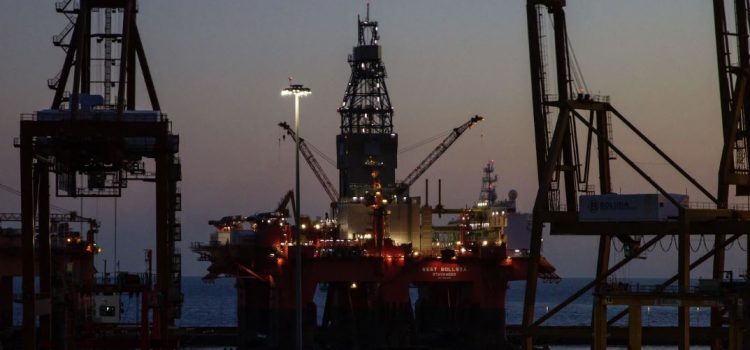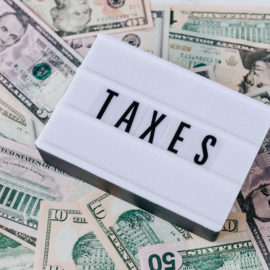

This article is an excerpt from the Shortform book guide to "Blowout" by Rachel Maddow. Shortform has the world's best summaries and analyses of books you should be reading.
Like this article? Sign up for a free trial here.
What is the oil curse? Why is having an abundance of oil a detriment to a country rather than a money-maker?
In her book Burnout, Rachel Maddow explains why countries rich in oil are usually stricken with poverty. She discusses Equatorial Guinea, the United States, and Russia.
Continue reading to learn how the oil curse can afflict a nation.
How Energy Production Can Weaken a Country
The oil curse theory applies primarily to so-called developing countries, which have historically been colonized by Europe. The governments of these countries tend to be comparatively young—most are less than a century old—and dependent on their relationships with foreign banks and companies. These largely European and American partners encourage developing governments to exploit their country’s natural resources to compete in the global market but provide little assistance toward diversifying their economies (so that they aren’t at risk of total collapse when a certain product crashes) or developing essential public infrastructure (such as roads, hospitals, schools, and workplaces for locals, like factories).
As a result, while developing countries make a lot of money from selling off their natural resources or access to drill sites for foreign companies, these profits are concentrated in the hands of a few businessmen and government officials. Few jobs are produced by investing in the energy industry, and the quality of life for the average citizen remains low.
The Oil Curse in Equatorial Guinea
Maddow’s example of a country afflicted by the curse is Equatorial Guinea, which has been exploited by American energy companies like Marathon, Hess, and ExxonMobil since the 1980s. Despite being one of the richest countries in Africa today, the quality of life for Equatorial Guinea is low, with nearly 80% of its citizens living in poverty. President Teodoro Obiang Nguema Mbasogo, an authoritarian who has been in power since 1979, is widely accused of embezzlement and taking bribes, alongside human rights abuses.
(Shortform note: While Equatorial Guinea has the highest GDP per capita in Africa as of 2021, it ranks low on the Human Development Index, which measures life expectancy, level of education, and average income. In the 2021-22 report, it was listed 145th out of 196 countries, behind most of North Africa as well as Ghana, Namibia, Botswana, and South Africa. It also frequently ranks low on human rights assessments, with Human Rights Watch describing the country as being “plagued” by “corruption, poverty, and repression.”)
Maddow suggests that Obiang is an attractive business partner to foreign energy companies since they can easily negotiate with him without having to worry about environmental regulations or local competition. Maintaining a good relationship with a dictator can also result in special deals—for example, while other countries require American oil drillers to share over half of their profits with the local government, Obiang’s government asks for less than a third of ExxonMobil’s profits. Though US federal investigations of Obiang have turned up evidence of corruption, the US government officially maintains a positive relationship with the country, even paying for an independent mercenary group to help protect its oil production facilities in 2010.
(Shortform note: Despite criticism—which intensified following a 2022 sham election in which Obiang retained the presidency with over 90% of the vote—the US maintains a strong relationship with Equatorial Guinea in order to continue extracting its oil and prevent it from finding an alternative ally in China. This is consistent with US policy toward other oil-producing nations accused of violating human rights and international law. For example, the US has repeatedly defended Saudi Arabia against claims that Crown Prince Mohammed bin Salman personally ordered the assassination of a dissident journalist in 2018.)
Maddow argues that even if Obiang was removed from power, the country’s total dependence on oil makes it unstable and prone to further exploitation by foreign companies. Since drill sites require more specialized equipment than manpower, the industry provides only a limited number of jobs for locals, and the equipment isn’t easily repurposed for other industries. In fact, oil drilling makes it harder for other industries to grow by seizing large swaths of land and damaging them to the extent that they can’t be used for agriculture or as building sites. The only way for Equatorial Guinea to escape the resource curse is to diversify its economy by investing in other industries.
(Shortform note: In contrast to Equatorial Guinea, the most stable and prosperous countries on the African continent tend to be parliamentary democracies with mixed economies. Egypt has a significant international presence and a diverse economy, profiting from oil alongside its agriculture, manufacturing, and tourism sectors. While South Africa still struggles with poverty and unemployment, it has well-developed infrastructure including roads and trains, strong mining and energy sectors, and is one of the most technologically advanced countries in Africa.)
The Oil Curse in Russia and America
While the United States and Russia don’t suffer from the oil curse to the same extent as Equatorial Guinea, Maddow argues that corruption and a focus on energy production at the expense of other industries still have a negative impact on these countries’ economies. While energy magnates have become billionaires over the past few decades, the quality of life for people living near oil or gas sites has stagnated or declined.
Even as Russia has become one of the primary energy producers in the world and the main supplier of gas to Europe, death and disease rates are high, the average household income is less than half that of other energy-producing countries like Norway and Saudi Arabia, and public infrastructure like roads remains underdeveloped in many cities. In the United States, while some states have used the profits from the energy industry to pay off debts and improve public services, others—such as Oklahoma—have given energy companies significant tax breaks even while a lack of tax revenue has meant the closure of schools and reduction in safety services that could save lives.
(Shortform note: While oil and gas companies often claim to benefit their local community by being “job creators,” the truth of this is debated. Some studies suggest that the energy industry supports millions of workers in the US alone and grew by the tens of thousands in the 2010s. Others agree with Maddow that these numbers are low compared to other industries and, as a whole, energy production depends on machinery and up-front investment rather than manpower. Interestingly, a 2022 US Department of Energy report suggests that while employment in the industry is growing, most of these jobs are in the production of clean energy rather than in oil or gas.)

———End of Preview———
Like what you just read? Read the rest of the world's best book summary and analysis of Rachel Maddow's "Blowout" at Shortform.
Here's what you'll find in our full Blowout summary:
- A deep dive into the corruption and exploitation in the oil and gas industry
- Examples of how the discovery of oil can weaken a country
- Possible ways to protect the world from the energy industry






